
The Honda Transalp 750 is a very likeable bike for many reasons, but what it isn’t is a scaled down Africa Twin, even though that’s what many people would expect it to be.
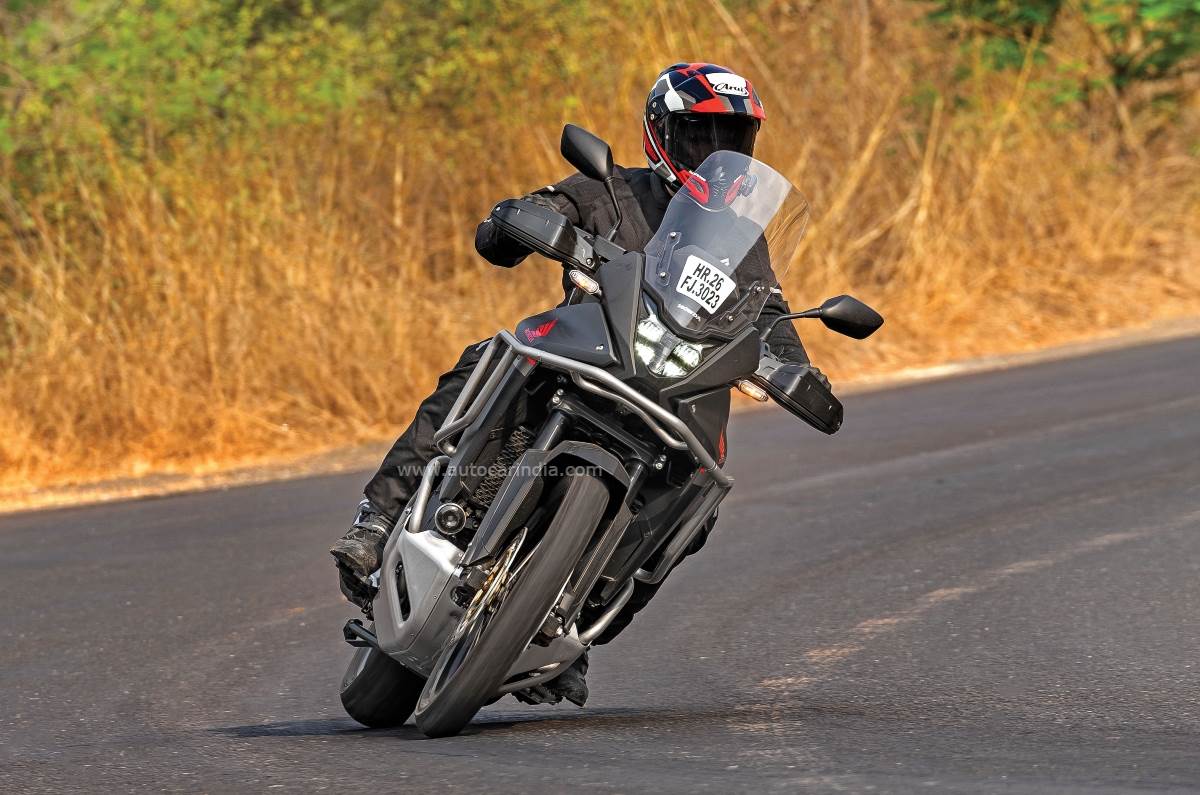
WHAT IT ISN’T
It’s an easy assumption to make, given that the Transalp has the same 21-inch front and 18-inch rear wheel combination as the Africa Twin. However, the Transalp is not about serious off-roading, which is something even Honda’s marketing material makes very clear – you won’t see any Pol Tarres-style riding gods doing insane things with this bike on social media. Our experience with it off-road suggests that it’s capable of taking you pretty far, but at a relaxed pace. Instead, where this bike truly excels is on the road.
WHAT IT IS
In typical Honda fashion, the Transalp is a very friendly, approachable and confident-feeling machine. It feels beautifully balanced at low city speeds without any sense of top-heaviness. The clutch is pleasantly light and so is the steering – it also has a very tight turning radius and the handlebar isn’t excessively wide.
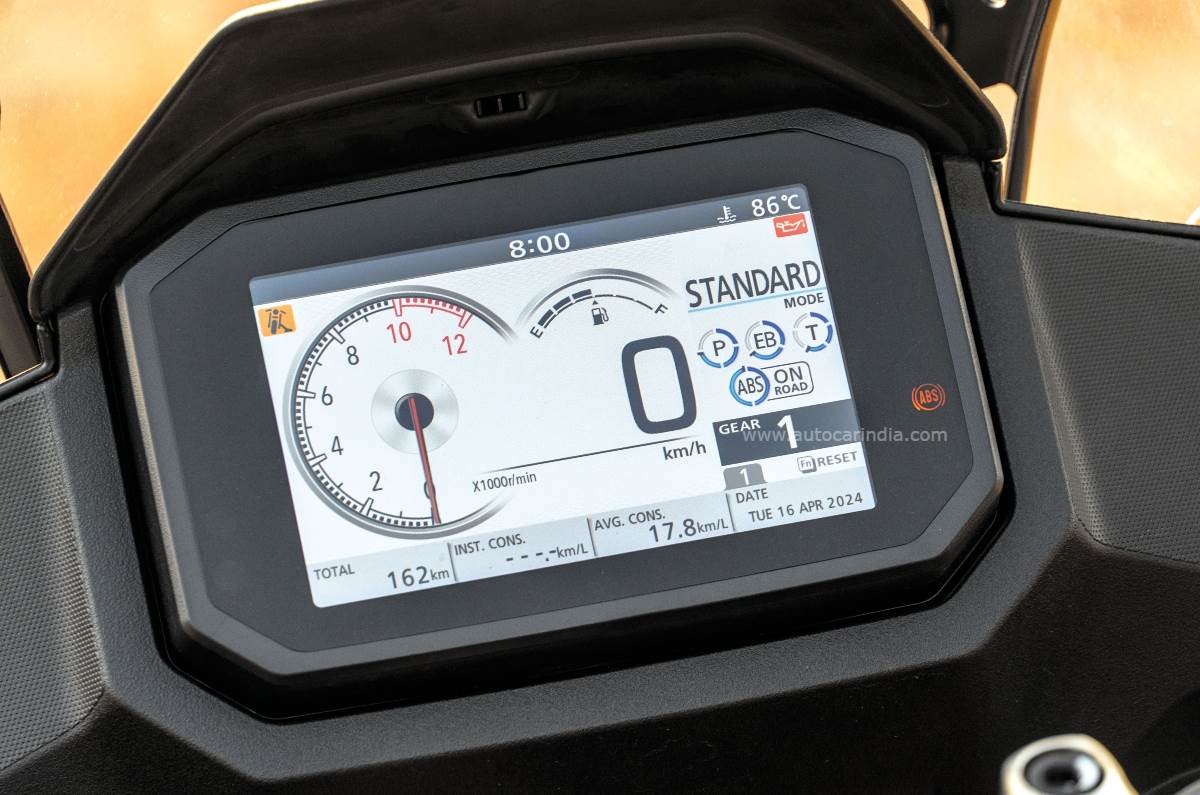
The Transalp is a mostly good-looking thing, although the headlamp that originated on the CB500X is too small for the rest of the bike. Quality is typical of Honda – somewhat simple, but well put-together and solid-feeling. Its TFT screen is also very nicely done, with four different viewing layouts.
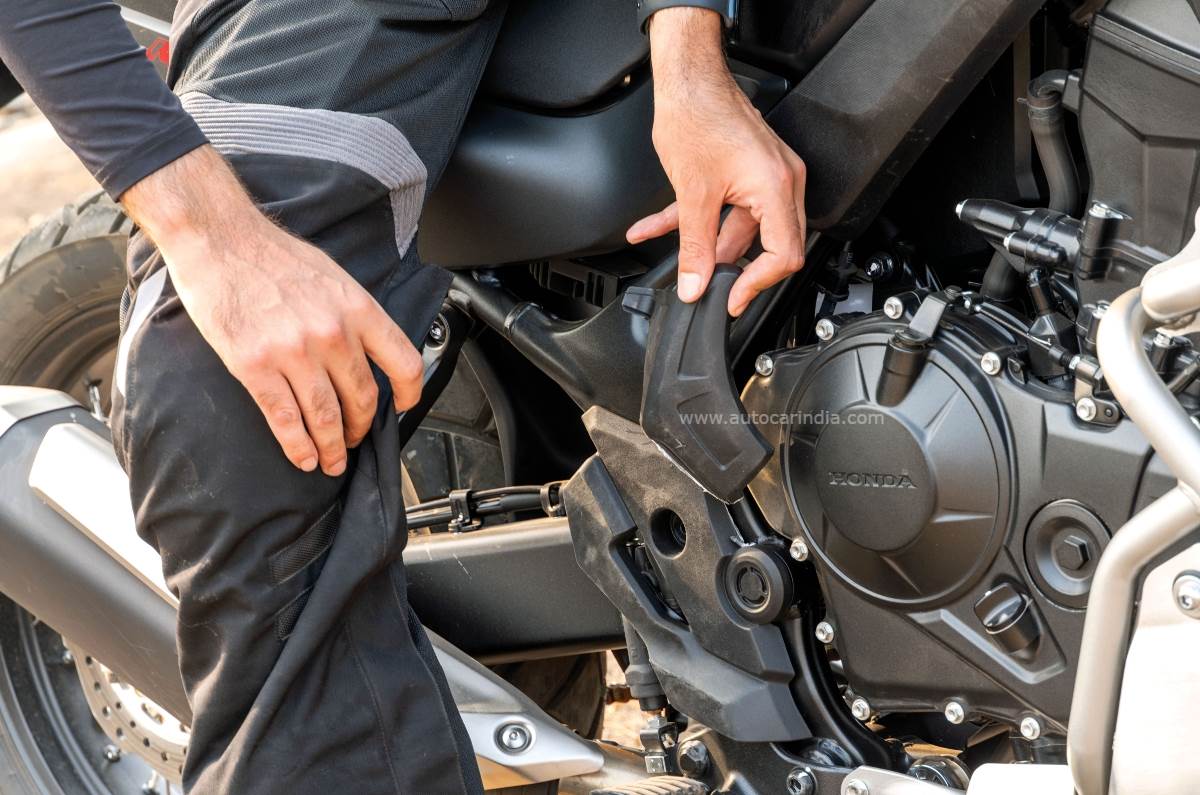
The riding position is pure comfort: upright, spacious, neutral, and with no unnatural bends or extensions for your limbs to deal with. From a pure comfort and ease-of-riding perspective, the Transalp is almost perfect for the segment. The only complaint I could come up with was that there’s noticeable heat. It’s not burning hot, but it’s more than just mild. And strangely enough, the heat seems to build at higher speeds, almost like the hot air from the radiator is coming right onto your shins and lower thighs. It’s worth mentioning that we rode the bike in peak heatwave, with temperatures above 42 degrees, and that’s bound to have some effect.
PLENTY QUICK
City riding is easy, but where the Transalp truly excels is on the highway. Its new 755cc motor looks peaky on paper, but there is actually a great spread of torque. In fact, while the max power of nearly 92hp comes in at 9,500rpm, I rarely wanted to rev the motor above 8,000rpm where vibrations set in. Even 6,000rpm will carry you to some pretty serious speeds – 140kph in sixth has the motor spinning at just about 5,000 revs and a 100kph cruise is absolutely placid.
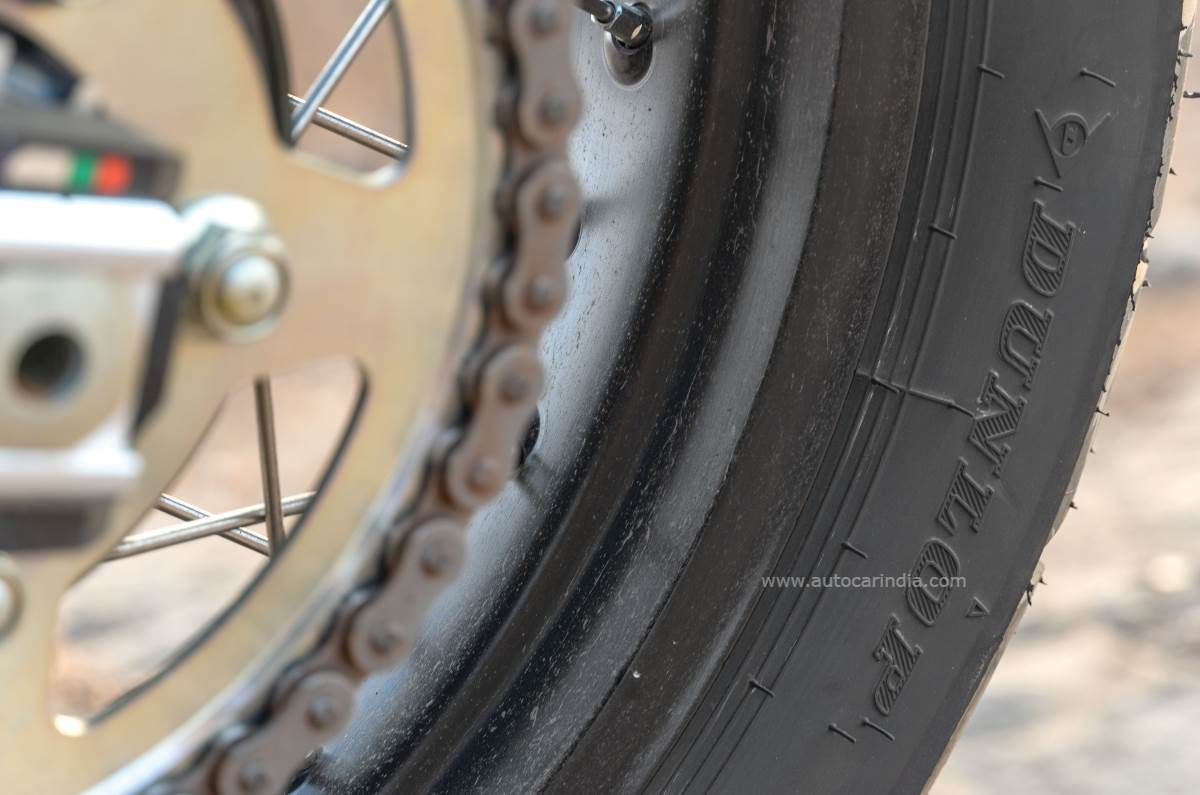
The pre-load adjustable suspension is good on the highway, too, soaking in most bumps very well, and it’s only repeated larger bumps that get the rear shock to struggle a bit. You will want to increase the rear preload for carrying a pillion or luggage and that’s when you’ll also miss having a remote pre-load adjuster.
ON AND OFF
Despite the off-road style big wheels, the Transalp is surprisingly fun in the bends. It takes very little effort to get it to lean over and it can do so to quite an extent. Even on its semi-blocky Dunlop Mixtour tyres, the Transalp handles well with a rock-solid sense of stability. Braking is handled by rather basic hardware but the performance is good – not outstanding, but good enough.
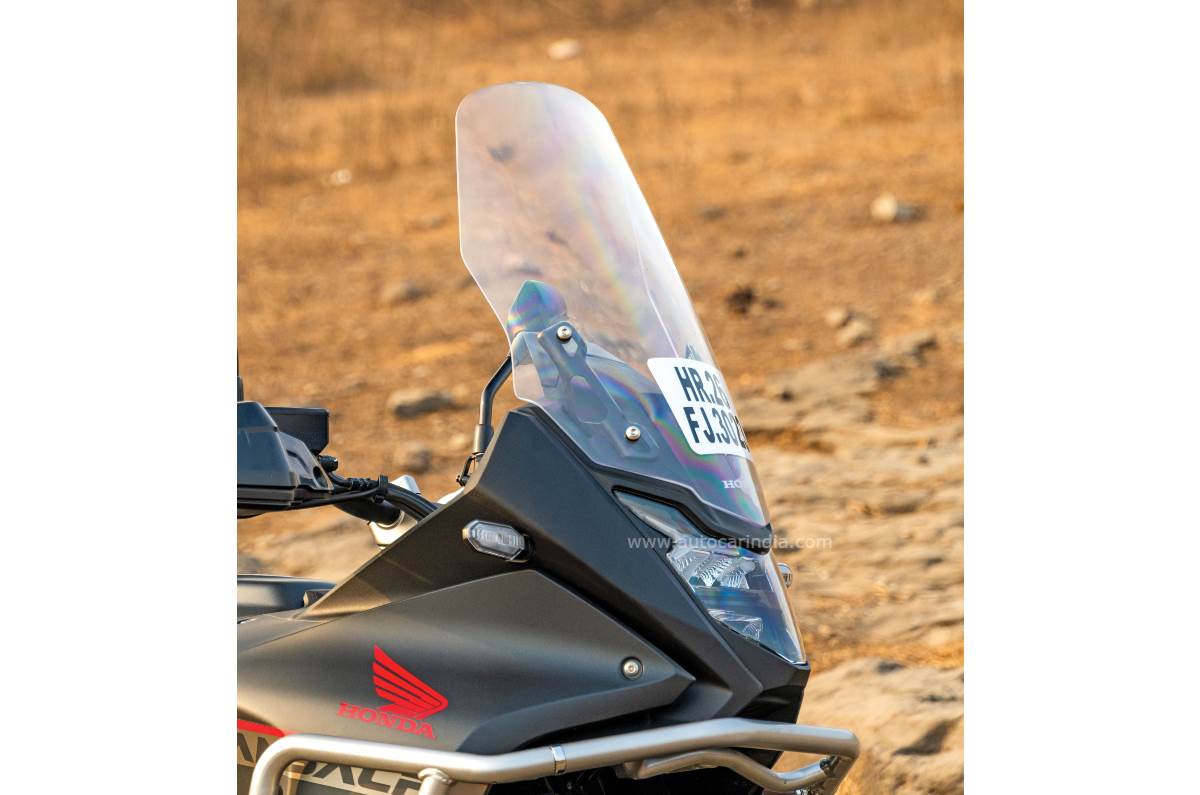
Electronic assists are plentiful, with adjustable traction control, engine brake control, throttle response and ABS. There are four preset riding modes and one user-adjustable mode. No matter the mode, the traction control and ABS can be a little oversensitive when going over speed breakers or rough patches, even in their lowest setting. You can turn both off (ABS only at the rear) but you’ll have to do so each time because the User mode’s traction and ABS settings get reset when you turn the ignition off.
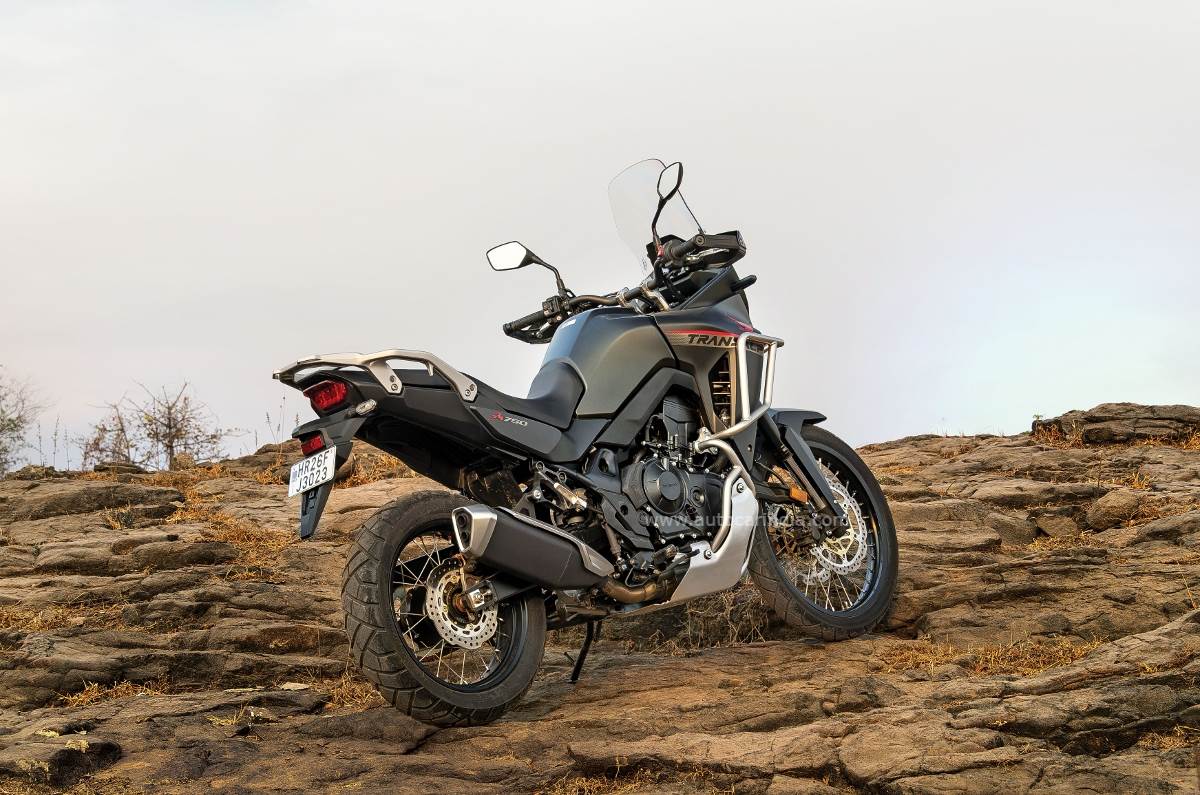
The Transalp is a large bike, but at 208kg it’s not as big as the likes of the BMW 850 GS or Triumph Tiger 900 and it feels nicely manageable. With about 200mm of suspension travel and ground clearance, the Transalp has what it takes to be a capable off-road explorer, but only as long as you keep the pace in check. Start to push and the soggy rear shock tends to pogo, which reduces control and makes the bike bottom out quite easily. This is a good time to mention that you will absolutely want engine protection of some kind because the sump extends underneath the engine by quite a bit.
THE COSTS PILE UP
The bike you see here has an optional sump guard as well as a bunch of other accessories like a taller windscreen, centre stand, crash guards, knuckle guards and more. The sump guard alone costs Rs 48,000 and all the accessories on the bike add up to about Rs 1.7 lakh. There’s no cruise control, and if you want a quickshifter, that will cost more as well. The biggest issue, however, is that the Transalp runs on tubed tyres. You can install the tubeless rims from the Africa Twin, but that will cost you another Rs 1.4 lakh.
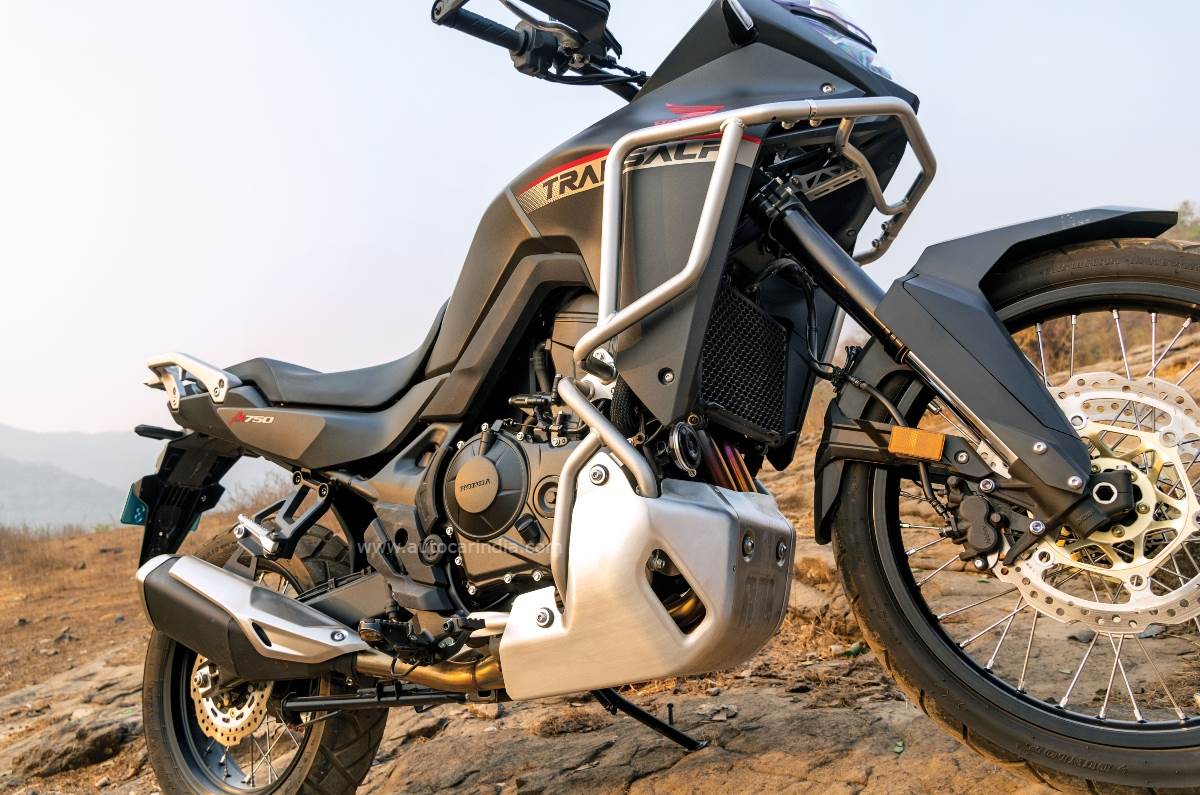
And that’s where things start to get problematic because the Transalp was never built to be this expensive. Its biggest USP is that it is the least expensive bike in its class overseas. However, being a CBU, that advantage is out the window in India, with an asking price of Rs 10.99 lakh (ex-showroom). Start giving it the accessories and upgrades one would expect from a big ADV and the price creeps uncomfortably close to the Tiger 900 range, which has a much more premium and capable experience to offer.
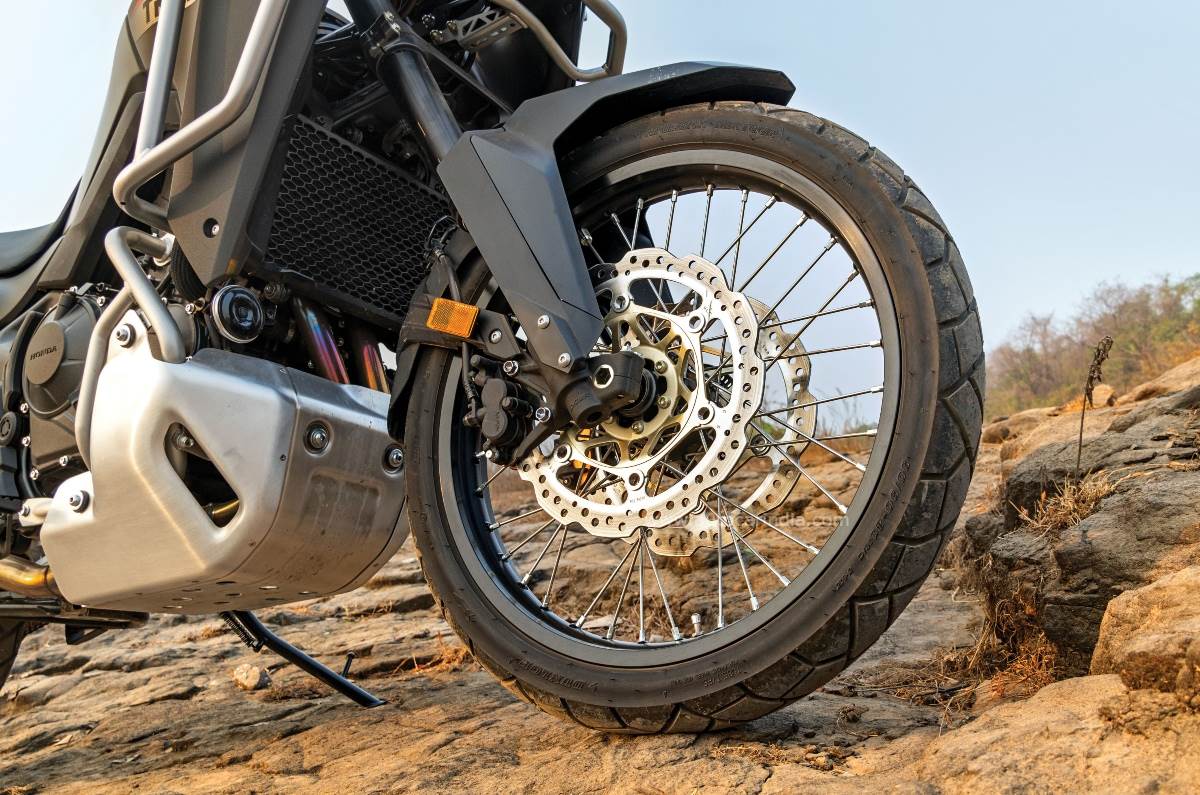
Overall, the Transalp is certainly a likeable motorcycle and one that the casual adventure motorcycle enthusiast will enjoy, particularly since it makes for an excellent tourer. You also have Honda’s reputation for reliability as well as lower running costs than most big bikes. For many folks, that’s what counts for true value and they’re generally willing to pay a premium for it.



